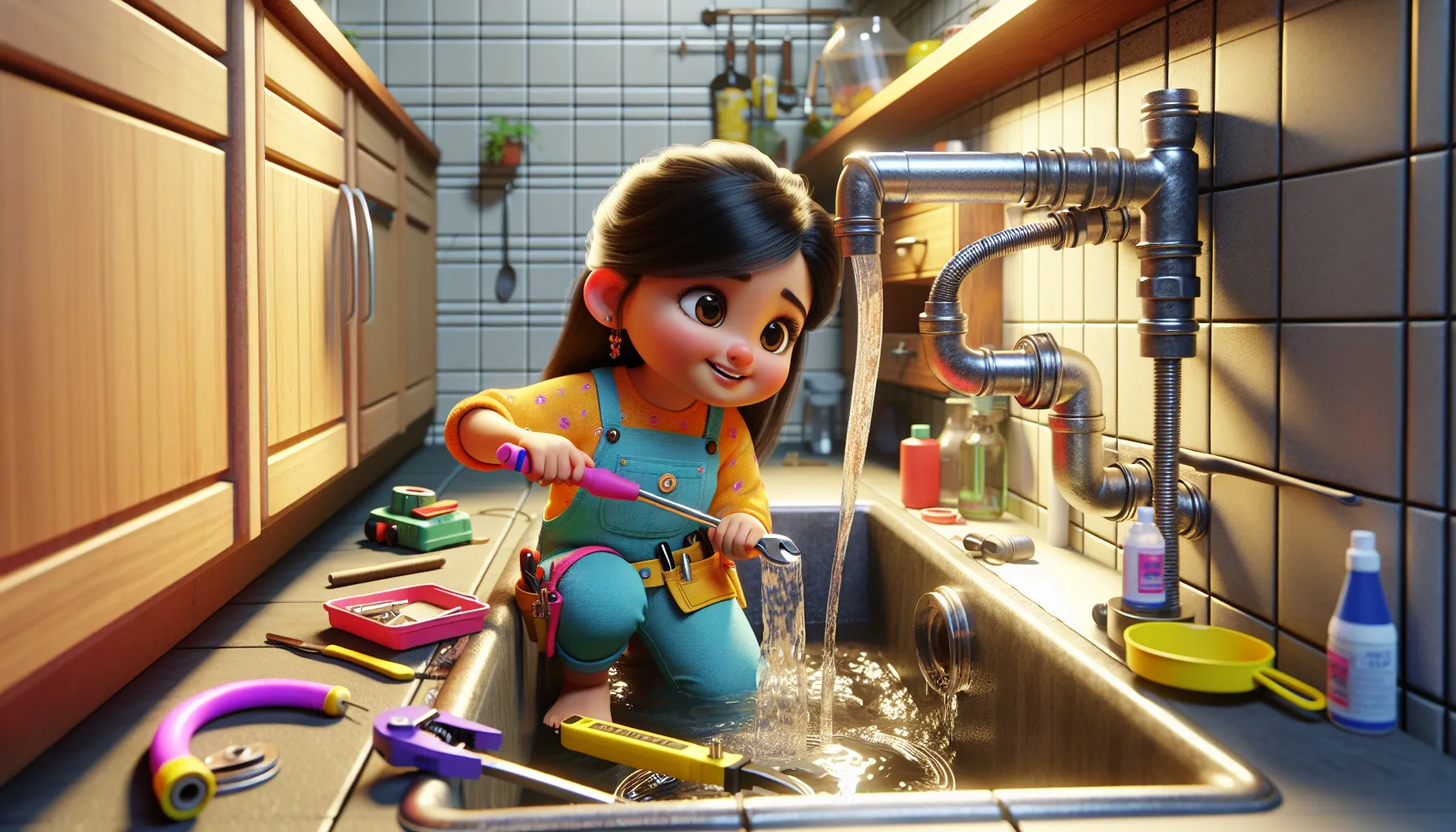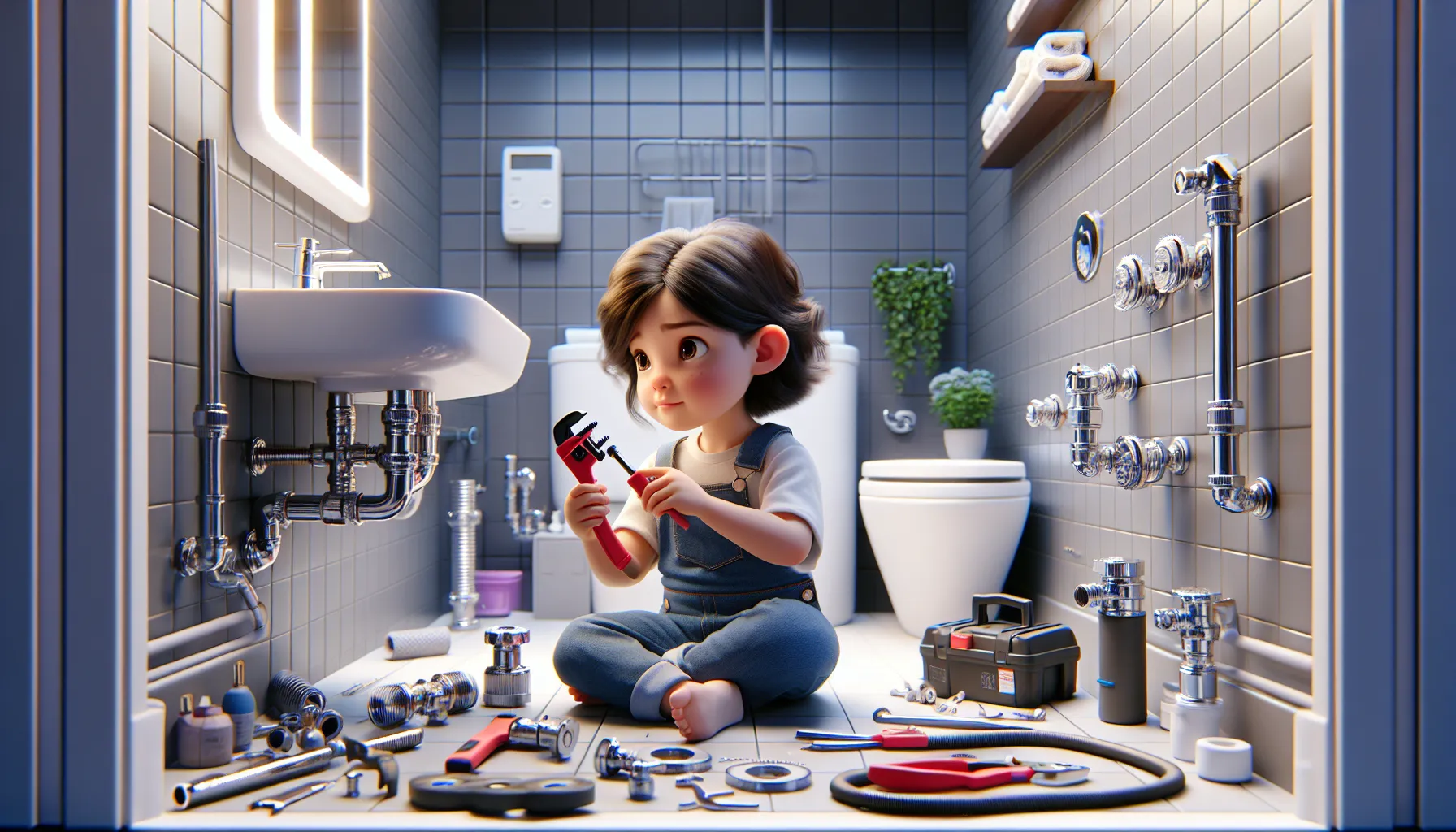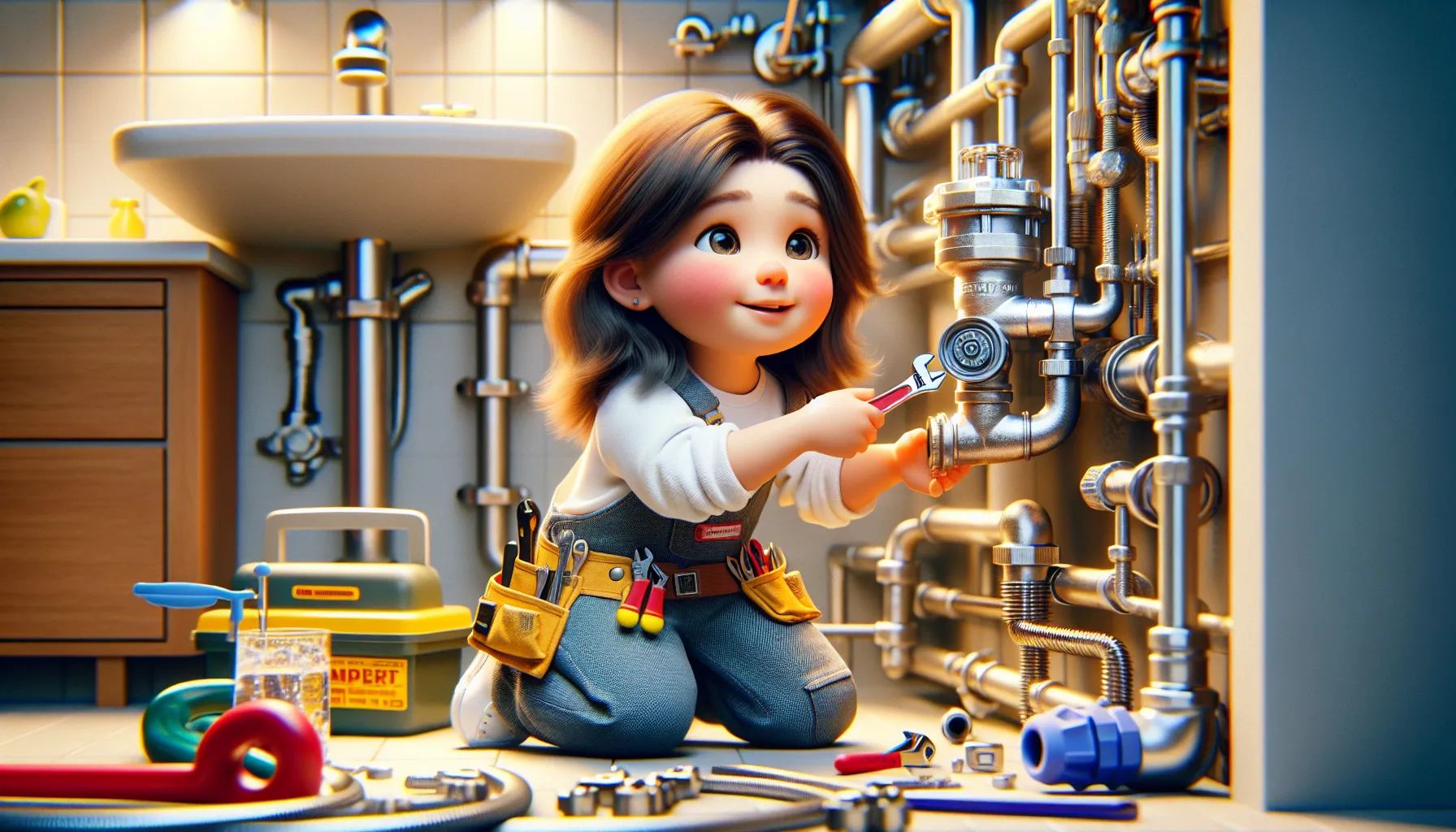There’s no denying the imperative role that proper drainage plays in our daily lives. Clogged drains can quickly turn from an inconvenience to a serious problem if left unattended. Regular drain cleaning is crucial for maintaining a healthy and efficient plumbing system in your home. Not only does it help prevent clogs and blockages that can lead to overflow and water damage, but it also ensures the smooth flow of waste water away from your property.
By scheduling routine drain cleaning with a professional plumber, you can prevent costly repairs and damage to your plumbing system. Additionally, regular maintenance can help eliminate foul odors caused by build-up in your drains, improving the overall hygiene of your home. Don’t wait for a plumbing emergency to address your drains – invest in regular drain cleaning to keep your plumbing system running smoothly.
Key Takeaways:
- Prevent Clogs: Regular drain cleaning helps prevent clogs by removing buildup of debris and mineral deposits.
- Reduce Odors: Cleaning your drains regularly can help eliminate foul odors caused by trapped food particles and bacteria.
- Improve Drainage: Clearing out any blockages in your drains can improve water flow and prevent slow draining sinks or showers.
- Prevent Costly Repairs: Regular maintenance can help detect potential issues early, saving you from expensive repairs down the line.
- Extend Drain Lifespan: By keeping your drains clean and free of debris, you can extend the lifespan of your plumbing system.
The Science behind Drainage Systems
How Drains Work
Behind every smoothly running drain is a complex system of pipes and connections that work together to remove wastewater from our homes. Gravity plays a crucial role in the drainage process, as water flows down from sinks, showers, and toilets through pipes that ultimately lead to the main sewer line. From there, the wastewater is carried away to treatment facilities where it is processed and purified before being released back into the environment. Understanding how drains work is important in appreciating the importance of regular maintenance and cleaning to prevent clogs and backups.
Common Causes of Drain Clogs
The common causes of drain clogs are many, but the results are always the same – inconvenience and potential damage. Some of the most common culprits behind clogged drains include hair, soap scum, food particles, grease, and mineral build-up. These substances can build up over time, leading to slow drains and eventually causing blockages that result in backups. It’s important to be mindful of what goes down our drains to prevent clogs and keep our drainage systems functioning efficiently.
Regular drain cleaning is important in preventing these common causes of drain clogs and maintaining the health of your drainage system. By scheduling routine maintenance and being conscious of what goes down your drains, you can avoid costly repairs and ensure that your plumbing works smoothly for years to come.
Benefits of Regular Drain Cleaning
Preventive Maintenance
Benefits of regular drain cleaning extend beyond preventing clogs and backups. By scheduling routine maintenance, you can identify potential issues early on and address them before they turn into costly repairs. Preventive maintenance also helps in maintaining the longevity of your plumbing system, saving you money in the long run.
Health and Environmental Considerations
With regular drain cleaning, you can prevent the build-up of harmful bacteria, mold, and mildew in your pipes. These contaminants not only pose health risks to you and your family but can also affect the environment if they enter the water supply. By keeping your drains clean, you are also contributing to a healthier and safer living environment.
Understanding the health and environmental implications of neglected drains can motivate homeowners to prioritize regular maintenance. The accumulation of dirt, grease, and other debris in pipes can attract pests and cause foul odors, impacting indoor air quality. Furthermore, untreated clogs can lead to water damage and mold growth, creating a hazardous living condition. Regular drain cleaning not only enhances the efficiency of your plumbing but also safeguards against potential health hazards and environmental harm.
Drain Cleaning Techniques
Mechanical Methods
On the frontlines of clearing clogged drains are mechanical methods. This approach involves using tools like drain snakes and plungers to physically remove blockages. Drain snakes, also known as plumber’s snakes, are long, flexible tools that can reach deep into pipes to dislodge debris causing the clog. Plungers provide a more immediate solution by creating pressure to push or pull the blockage out of the way. These methods are effective for minor clogs and are a good starting point in the drain cleaning process.
Chemical Cleaners
On the other hand, chemical cleaners offer a more chemical-based approach to drain cleaning. These products typically contain strong chemicals that break down organic matter causing the blockage. While chemical cleaners can be effective in breaking down clogs quickly, they also come with some drawbacks. The harsh chemicals can be damaging to pipes over time and pose health risks if not used properly.
Cleaning drainage systems using chemical cleaners should be done with caution and never as the first line of defense against a clog.
Natural Drain Cleaning Solutions
Techniques using natural drain cleaning solutions offer a safer and environmentally friendly alternative to chemical cleaners. Ingredients such as baking soda, vinegar, and hot water can be combined to create a foaming reaction that helps break down clogs. These natural solutions are gentle on pipes and are a great option for regular maintenance to prevent future clogs.
Using natural drain cleaning solutions not only helps to keep your drains clear but also reduces the risk of harmful chemicals entering the environment.
Understanding
When considering drain cleaning techniques, it is important to understand the pros and cons of each method. Mechanical methods provide a hands-on approach to removing blockages, while chemical cleaners offer a quick fix but come with potential risks. Natural solutions present a safer and eco-friendly option for maintaining clear drains. By choosing the right technique based on the severity of the clog and being mindful of potential hazards, you can effectively keep your drains flowing smoothly.
Professional vs. DIY Drain Cleaning
When to Hire a Professional
For tough clogs that persist despite using store-bought drain cleaners or homemade remedies, it may be time to call in a professional. Plumbers have specialized tools and equipment, such as drain snakes and hydro-jetting machines, that can effectively clear out stubborn blockages without causing damage to your pipes. Additionally, if you have older plumbing systems or suspect a more serious issue like tree root intrusion, a professional assessment and cleaning are crucial to prevent costly repairs down the line.
Safety and Effectiveness of DIY Methods
On occasions when you encounter a minor clog or slow drain, attempting a DIY approach can be tempting. However, it’s imperative to be aware of the safety risks and limitations of using chemical drain cleaners or household items like baking soda and vinegar. Chemical drain cleaners can be harsh on your pipes and pose a danger to your health if not used correctly. While natural remedies like baking soda are safer, they may not always be effective for tough blockages or root intrusions.
With this in mind, it’s crucial to exercise caution and follow instructions carefully when opting for a DIY drain cleaning method. If you are unsure about the severity of the clog or lack the necessary tools, it’s best to seek professional assistance to avoid causing further damage to your plumbing system.
Drain Maintenance Tips
Your drain plays a crucial role in your home’s plumbing system, so it’s important to keep them well-maintained to avoid clogs and backups. Follow these tips to ensure your drains are clear and functioning properly:
Daily Habits to Prevent Clogs
Drain maintenance starts with simple daily habits that can help prevent clogs and keep your drains flowing smoothly. Make sure to avoid pouring grease, oil, or coffee grounds down the drain, as these can solidify and cause blockages. Use a hair catcher in the shower to prevent hair from accumulating in the drain and causing clogs. Additionally, flush your drains with hot water after each use to help break down any buildup and keep them clean.
After all, small actions taken daily can make a significant impact on the long-term health of your drains.
Long-Term Drain Care Strategies
One key strategy for maintaining your drains in the long term is to schedule regular professional drain cleaning services. Professional plumbers have the expertise and tools to thoroughly clean your drains and remove any buildup that has accumulated over time. They can also inspect your pipes for any potential issues and address them before they turn into major problems. Additionally, consider using enzyme-based drain cleaners on a monthly basis to help prevent clogs and keep your drains clear.
Daily maintenance and regular professional cleaning are important components of a comprehensive drain care plan. By following these strategies, you can ensure that your drains remain clear and free-flowing for years to come.
Warning Signs of Drain Issues
Once again, it’s crucial to be aware of the warning signs that indicate potential drain issues in your home. Ignoring these signs can lead to more significant problems down the line, resulting in costly repairs and inconveniences. By recognizing these early indications of clogs, you can address the issue promptly and prevent further damage to your plumbing system.
Recognizing Early Indications of Clogs
Signs of drain issues can manifest in various ways, such as slow drainage in sinks, showers, or tubs, gurgling noises coming from the drains, water pooling around the drain area, or foul odors emanating from the pipes. These symptoms often indicate a clog forming in the pipes, restricting the flow of water and causing backups. It’s necessary to pay attention to these warning signs and take action before the problem escalates.
What to Do When You Notice Warning Signs
Signs of drain problems should prompt you to take immediate action to prevent further complications. Start by trying simple solutions like using a plunger or plumber’s snake to clear minor clogs. If the issue persists, avoid using chemical drain cleaners, as they can cause more harm than good to your pipes. Instead, consider contacting a professional plumber to assess the situation and provide the necessary repairs.
Warning: Ignoring warning signs of drain issues can lead to more severe problems, such as sewage backups, burst pipes, or water damage to your property. It’s crucial to address these issues promptly to avoid costly repairs and maintain the efficiency of your plumbing system.
Legal and Regulatory Aspects of Drain Care
Local Codes and Regulations
To ensure the proper maintenance and care of drains, it is crucial to be aware of the local codes and regulations that govern plumbing systems. These regulations are put in place to safeguard public health and the environment. They often dictate how often drains should be cleaned, the proper disposal of waste materials, and the use of licensed professionals for certain tasks. Violating these codes can result in fines and legal implications, so it is crucial to stay compliant.
Responsibility and Compliance
Codes related to drain care outline the responsibilities of property owners in maintaining their drainage systems. Regular drain cleaning is not just a matter of convenience, but a responsibility that property owners must uphold. Compliance with these regulations not only ensures the smooth operation of drains but also prevents costly repairs and potential health hazards. By adhering to these guidelines, property owners can avoid legal issues and contribute to a safer environment for everyone.
Understanding the legal and regulatory aspects of drain care is crucial for property owners to avoid potential complications. Consulting with a professional plumber can provide further guidance on how to comply with these regulations and maintain a healthy drainage system. Prioritizing regular drain cleaning not only meets legal requirements but also extends the lifespan of plumbing fixtures and prevents unexpected emergencies.
To wrap up
As a reminder, regular drain cleaning is a crucial maintenance task that helps prevent clogs, backups, and other plumbing issues. By investing in professional drain cleaning services, you can ensure the efficient operation of your plumbing system and avoid costly repairs down the line. Keeping your drains clean also promotes better hygiene, prevents foul odors, and maintains the overall health of your home.
To conclude, don’t wait for a plumbing emergency to schedule drain cleaning. Make it a regular part of your home maintenance routine to keep your plumbing system running smoothly and to avoid potential headaches in the future. With professional drain cleaning, you can enjoy peace of mind knowing that your drains are clear and free from any obstructions that could cause problems in the long run.
FAQ
Q: Why is regular drain cleaning important?
A: Regular drain cleaning is important to prevent clogs, maintain proper drainage flow, and extend the lifespan of your plumbing system.
Q: How often should drains be cleaned?
A: Drains should be cleaned at least once a year to prevent buildup of debris and potential clogs. However, high-traffic areas or commercial properties may require more frequent cleanings.
Q: What are the benefits of professional drain cleaning services?
A: Professional drain cleaning services use specialized equipment to effectively remove buildup and clogs that may not be easily accessible with DIY methods. They also help to identify any potential issues in the plumbing system early on.
Q: What are signs that indicate a need for drain cleaning?
A: Signs that indicate a need for drain cleaning include slow drainage, gurgling sounds coming from the drains, foul odors emanating from the drains, and recurring clogs.
Q: How can I maintain my drains between professional cleanings?
A: To maintain your drains between professional cleanings, avoid pouring grease, oil, coffee grounds, and other materials that can cause clogs down the drain. Use a drain strainer to catch hair and debris, and periodically flush drains with hot water and vinegar to help prevent buildup.



